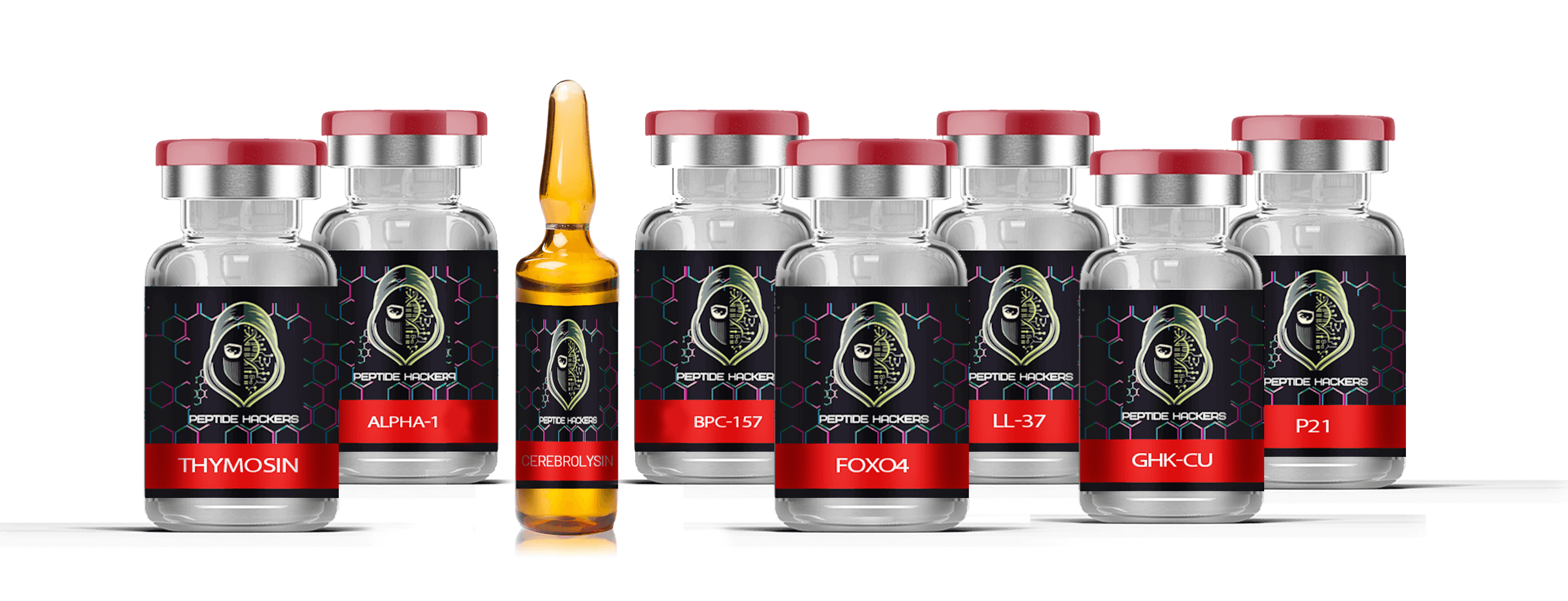What Are Peptides and How They Work: A Comprehensive Guide

What are peptides, and how do they work?
Peptides are short chains of amino acids, forming the building blocks of proteins.
When introduced to the body, peptides interact with cells to trigger specific functions, including repairing tissues, reducing inflammation, and boosting the immune system. Their role is paramount in maintaining and enhancing overall health.
Learn more about peptides.
1. What Are Peptides?
Peptides are crucial biomolecules composed of short chains of amino acids.
In essence, peptides act as the fundamental building blocks for proteins, the macromolecules responsible for virtually every function in living organisms. The presence of peptides in cellular activities illustrates their significance and versatility.
More specifically, each peptide consists of two or more amino acids linked by peptide bonds. Their structure and function can vary immensely, contributing to their diverse roles in biological processes.
Fascinatingly, peptides have garnered attention in scientific research due to their therapeutic potential. Researchers have been exploring their applications in various fields, including medicine, skincare, and fitness, thanks to their ability to influence bodily functions.
Understanding peptides opens a gateway to appreciating their intricate connection to our health.
2. How Peptides Are Formed
Peptides are formed through a biochemical process known as peptide bond formation, which involves the linking of amino acids. This vital process is facilitated by ribosomes, organelles within cells, following the genetic instructions coded in mRNA.
Enzymes catalyze the formation of peptide bonds between the carboxyl group of one amino acid and the amino group of another. This enzymatic action releases a molecule of water, a process termed dehydration synthesis, effectively connecting the amino acids.
Consequently, a chain of amino acids emerges, progressively elongating into a polypeptide. The sequence of amino acids in this chain is determined by the mRNA, reflecting the precise instructions originally encoded in DNA.
A growing polypeptide chain can undergo further modifications post-translation. Enzymatic reactions, folding, and even the addition of other molecules may occur, transforming the polypeptide into a functional peptide or protein.
These modifications are crucial as they dictate the peptide’s structure, which in turn influences its specific biological activity. Such precise tailoring is essential for the myriad functional roles peptides play within an organism.
Ultimately, the formation of peptides is an intricate dance of molecular interactions. It illustrates the extraordinary detail with which cellular machinery operates, resulting in the generation of these versatile and dynamic biomolecules.
3. Functions of Peptides in the Body
Peptides exert crucial biological functions.
Among their varied roles, peptides help regulate hormones. They serve as messengers in several physiological processes, carrying out essential tasks such as stimulating growth, initiating cellular repair, and acting as neurotransmitters. Consequently, they play an integral role in maintaining homeostasis and optimizing overall health.
They also contribute to immune responses.
These small but potent molecules can influence gene expression and modulate the body’s response to external stimuli – be it stress, exercise, or the presence of pathogens – thus underscoring their importance in adaptive and innate immunity.
Moreover, peptides promote wound healing and tissue repair by accelerating the formation of new blood vessels and collagen, key components necessary for recovery. Their involvement in skin health, muscle growth, and metabolic regulation further exemplifies their pivotal position in maintaining the body’s equilibrium.
4. Types of Peptides
Peptides can be broadly categorized based on their functions, which range from antimicrobial peptides to signaling peptides. These classifications highlight the diverse roles peptides play in biological systems, underscoring their importance in numerous physiological processes.
An important category includes bioactive peptides, such as “hormonal peptides”. These act as a subset of signaling peptides, directly involved in critical bodily functions. In this realm, the categorization of each peptide sheds light on the specificity with which they can influence various cellular actions, thus making them vital in understanding and harnessing their potential benefits.
4.1 Hormonal Peptides
Hormonal peptides are remarkable modulators of various physiological processes. They act as intricate messengers, directly involved in regulating essential functions within the body.
These peptides facilitate the communication between different glands and organs, often being termed as “biochemical messengers”. They play a pivotal role in maintaining homeostasis, signaling changes that adjust to the body’s needs.
Insulin is a well-known example of a hormonal peptide regulating blood sugar levels.
Understanding these peptides’ actions: By comprehending the mechanisms of hormonal peptides, researchers can develop targeted therapies to address imbalances and enhance overall health. Their precise biochemical interactions offer potential solutions for treating metabolic disorders, growth deficiencies, and hormonal imbalances effectively.
4.2 Structural Peptides
Structural peptides, as their name implies, provide essential support to the framework of biological tissues.
These peptides are integral components of the extracellular matrix, contributing to the stability and integrity of cellular structures.
Collagen, an exemplary structural peptide, is a key element in connective tissues, offering resilience and strength to skin, bones, and cartilage.
Beyond collagen, elastin is another crucial structural peptide, lending elasticity and flexibility to tissues, which is vital for organs that undergo frequent stretching.
Their unique properties and functions provide a foundation for future innovations in regenerative medicine and tissue engineering.
4.3 Antimicrobial Peptides
Antimicrobial peptides are crucial components of the innate immune system, providing a first line of defense against pathogens.
- Broad-spectrum activity: Effective against bacteria, viruses, fungi, and parasites.
- Mechanism of action: Disrupting microbial cell membranes, leading to cell death.
- Resistance development: Lower likelihood compared to traditional antibiotics.
- Therapeutic potential: Promising candidates for novel treatments in infectious disease management.
Their rapid mode of action enhances the host’s ability to combat infections quickly.
Antimicrobial peptides are being researched for use in pharmaceuticals, agriculture, and food preservation.
Their multifunctional nature makes them invaluable tools for advancing health and preventing disease in various sectors.
5. Peptides in Skincare
Peptides have emerged as a revolution in skincare due to their remarkable ability to rejuvenate the skin.
In 2016, dermatologists identified peptides’ potential to stimulate collagen production, improving skin elasticity and firmness.
Today, it’s no longer a question of whether peptides work but how they can best be integrated into one’s skincare regimen to achieve visible and lasting results.
Formulated into serums and creams, specific peptides target signs of aging, hydration levels, and skin tone evenness, making them indispensable in modern dermatological practices.
Their application not only promises improved skin health but also contributes significantly to the evolving landscape of skincare technology.
6. Benefits of Peptides
Peptides offer a broad spectrum of benefits, revolutionizing various industries from healthcare to cosmetics.
In pharmaceuticals, they hold promise for creating new, more effective medications with fewer side effects.
Their antimicrobial properties are invaluable for developing advanced treatments against resistant pathogens.
Moreover, peptides are widely celebrated in the skincare industry for their ability to enhance skin texture and reduce signs of aging.
Their contributions continue to pave the way for innovations in science and healthcare.
7. How Peptides Work
Peptides act as biological messengers.
These small chains of amino acids play crucial roles within the body. They send signals to cells, instructing them to perform specific functions, like producing collagen or initiating repair processes. Consequently, they are vital in various biochemical reactions that uphold health and vitality.
Their efficacy in skincare is particularly prominent.
When applied topically, peptides penetrate the skin to boost its natural functions. By prompting skin cells to produce more collagen, they improve firmness and elasticity.
Overall, the precise action of peptides empowers them to effect various fundamental physiological changes, underscoring their invaluable role in modern science and healthcare.
8. How to Use Peptides Effectively
Understanding optimal peptide use.
For maximum benefits, it is paramount to follow the correct application protocol. One should incorporate peptides into their routine methodically, often using products as directed by skincare or medical professionals. Consistency, coupled with the right formulation, undoubtedly yields the most noticeable results.
Determine suitability based on needs.
Selecting a peptide product that matches specific skin concerns is vital. Whether it’s for anti-aging, hydration, or healing, ensuring the chosen peptide aligns with the desired outcome facilitates effectiveness.
Additionally, preventing overuse is crucial.
While peptides are powerful, moderation is key to avoiding irritation or diminishing returns. Using them in tandem with other complementary skincare ingredients can further enhance their performance.
Armed with knowledge and strategic application, one can confidently harness the transformative potential of peptides to achieve radiant, youthful skin. Peptides, when used judiciously, offer unparalleled benefits that elevate any skincare or health regimen.
9. Peptides in Supplements
In recent years, the use of peptides in dietary supplements has gained significant traction in the wellness industry.
In 2016, sports enthusiasts, a notable sector within the health community, began widely acknowledging the benefits that peptide supplements could bring to muscle recovery and growth.
For athletes, it’s not just about physical performance; peptides play a critical role in the efficient repair and regeneration of muscle tissues, offering a non-invasive way to enhance overall athletic performance.
As research continues to support their efficacy, peptide supplements have found their place not only in the realm of sports but also in anti-aging and general health. These supplements are lauded for their ability to stimulate collagen production, which is vital for maintaining skin elasticity and firmness.
In conclusion, peptide supplements promise a multitude of health benefits, making them a valuable addition to anyone’s dietary regimen.
10. Potential Side Effects of Peptides
While peptides offer many benefits, it’s essential to be aware of potential side effects and consult professionals for guidance.
Generally, most side effects are mild and may include temporary redness, itching, or swelling at the injection site. Moreover, individuals with allergies should exercise caution, as adverse reactions can occur, necessitating immediate medical attention.
Occasionally, users might experience digestive issues, such as stomach cramps or diarrhea. In rare instances, the use of peptides can lead to more serious complications requiring professional healthcare intervention.
Ultimately, by understanding potential side effects and utilizing peptides responsibly, individuals can maximize their health benefits while minimizing risks. Staying informed and consulting with healthcare providers ensures a safe and productive experience with peptide therapy.


